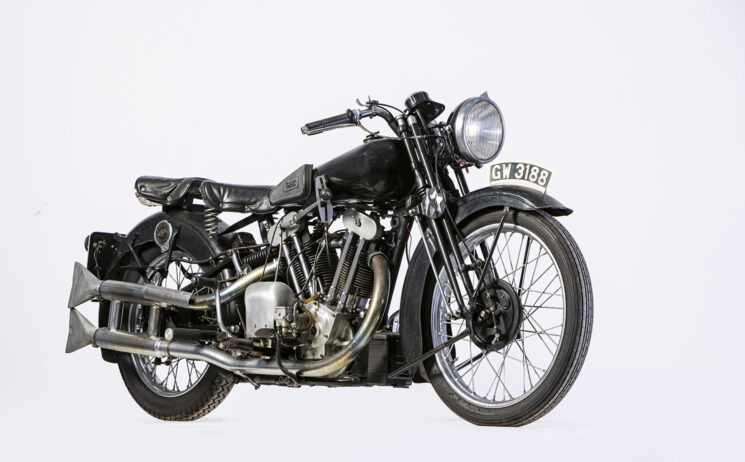
1931 Brough Superior SS100 George Brough took a great deal of pride in each of his Brough Superior motorcycles, having ridden each bike personally to guarantee its performance, but this 1931 SS100 model is especially significant. Specially prepared for the 1931 Olympia Motor Cycle Show, this SS100 carries factory ‘show model’ stampings and enhanced cosmetics, and has been with its current owner since 1973.
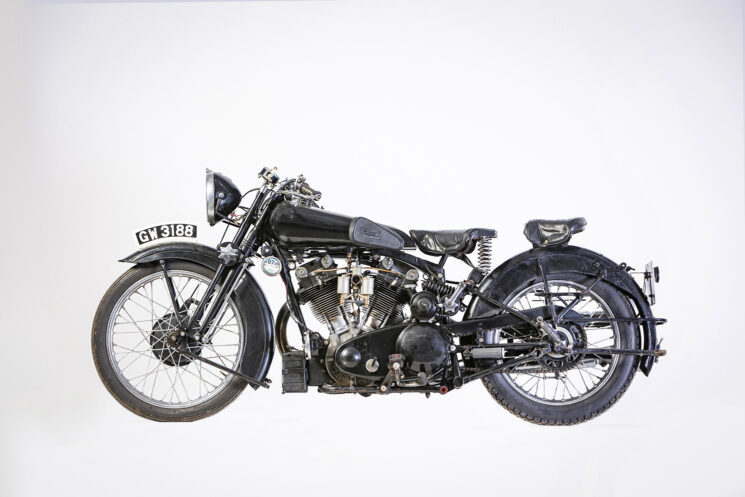
Quality and performance were Brough’s utmost concerns, but by the mid 1920s, a more serious contender was needed to match the output of America’s Harleys and Indians. Brough started with a 867 cc JAP OHV v-twin, but eventually moved up to 980 and 996 cc JAP OHV twins for the new SS100 model. The fork was a modified Harley springer, and a proprietary rear suspension system was optional. George Brough personally certified that every SS100 model was capable of at least 100 mph.
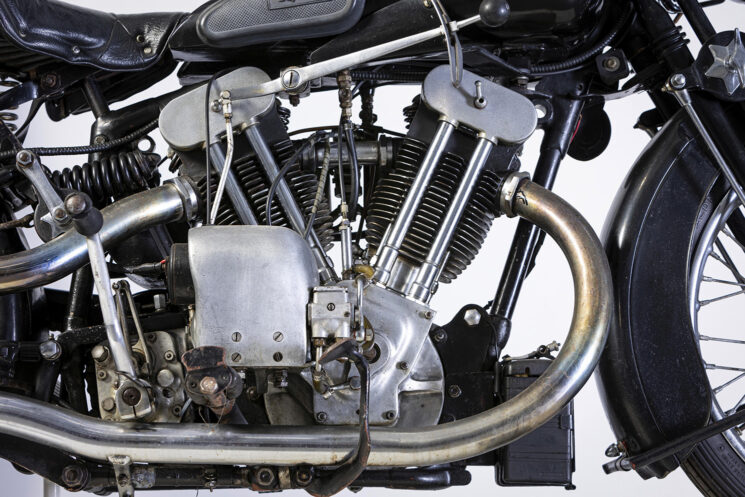
To make the biggest impact at the Olympia Motor Cycle Show, this SS100 received a special combination of black paint and chromium plating on the fuel tank, mudguards and wheels. While it’s now covered by a layer of old black paint, the seller states that the show paint is still present. Given the special significance and well-documented history of this Brough Superior SS100, Bonhams estimates the bike will sell for between $187,000 and $225,000.
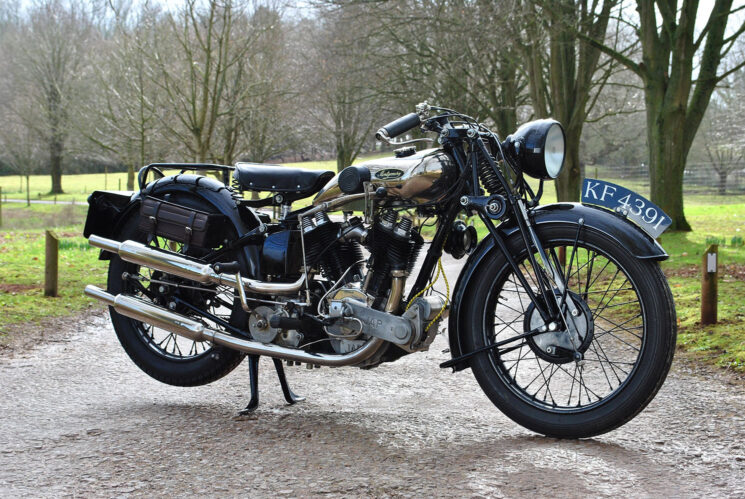
1930 Montgomery-JAP 996 William Montgomery invented the motorcycle sidecar, and up until World War I, his company focused on fine commuter cycles with innovative sidecars affixed. It took several years to resume production after the war, but when they did, Montgomery motorcycles were some of the fastest and highest quality bikes of the era.
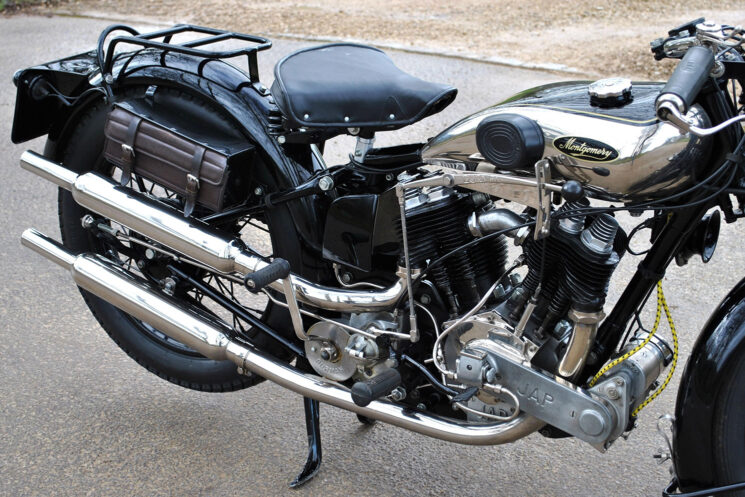
This 1930 Montgomery was likely one of the company’s most exotic offerings of the day, as it’s powered by a 996 cc side-valve JAP v-twin — likely good for around 26 hp. Heavy use of polishing and chrome with black paint gives this Montgomery timeless visual appeal, and the bike is said to be in outstanding original condition. Bonhams estimates a hammer price between $63,000 and $69,000.
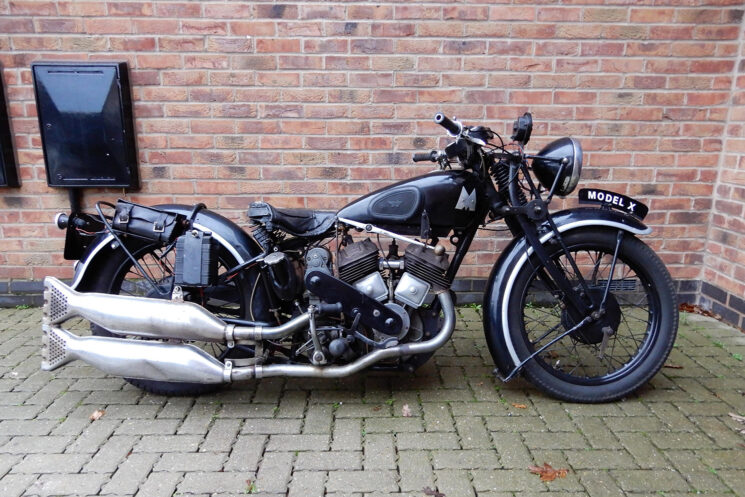
1932 Matchless Model X The Matchless name was established by success in road racing, especially its single-cylinder models at the Isle of Man. But as early as 1912, the company was experimenting with larger v-twins equipped for sidecar duty.
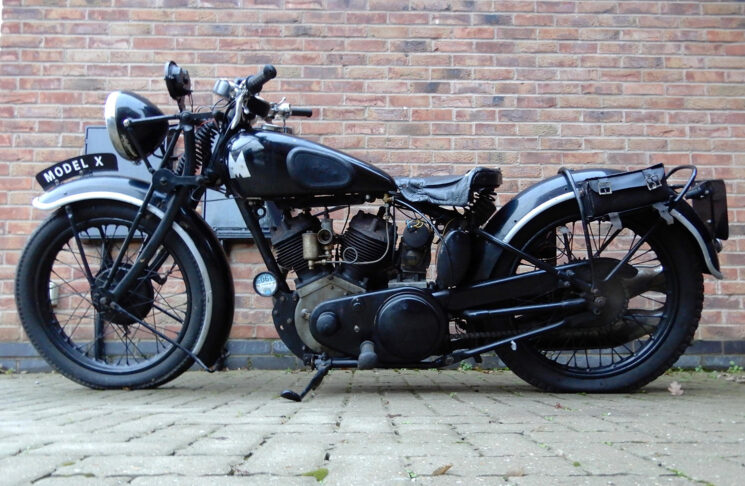
One of the most popular Matchless cycles of the period was the charming Model X, which was fit with a proprietary v-twin engine and a reinforced rear frame section for sidecar use. The Model X stayed in production from 1929 to 1940, and was capable of speeds over 80 mph. Even after its side-valve v-twin was outclassed by the latest OHV v-twins in the 1930s, the Model X continued to sell, and the Matchless v-twin was used in other British bikes of the era.
Bonhams’ lot 492 is a 1932 Matchless Model X with matching numbers and an older restoration. The lot is expected to bring between $25,000 and $30,000.
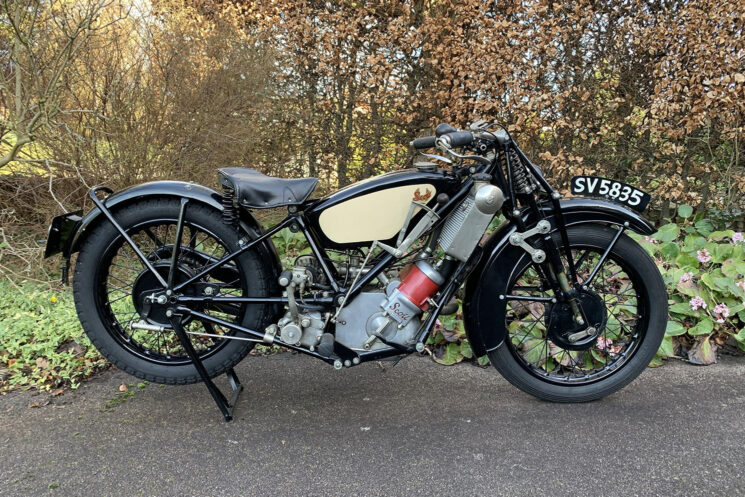
1930 Scott Flying Squirrel Like so many of his peers, Alfred Angas Scott got his start in the early days of motorized bicycles. Scott believed in the power of two-strokes, and his water-cooled engines easily outclassed similar four-strokes from 1908 to 1914. Competition wasn’t his original intention, but he recognized the sales potential, and his bikes achieved notable victories at the Isle of Man and in hillclimb racing.
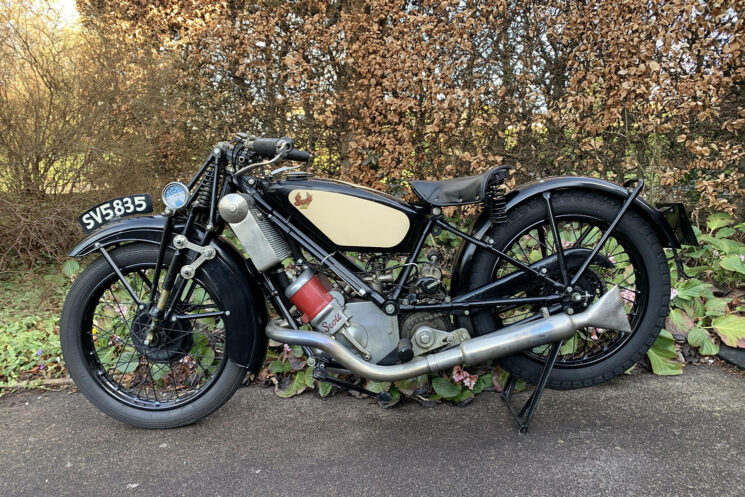
The Squirrel was Scott’s return to form model after World War II, and the model evolved into the Flying Squirrel by 1946. Power came from 498 and 596 cc two-strokes, cooled by a massive aluminum radiator. Relative performance wasn’t as dominant as Scott’s earlier machines, but was still quite sporty for the period.
Bonhams’ lot 340 is a 1930 model Flying Squirrel with a 596 cc engine sourced from an earlier Super Squirrel. The pre-auction estimate comes in at $8,800 to $11,000.
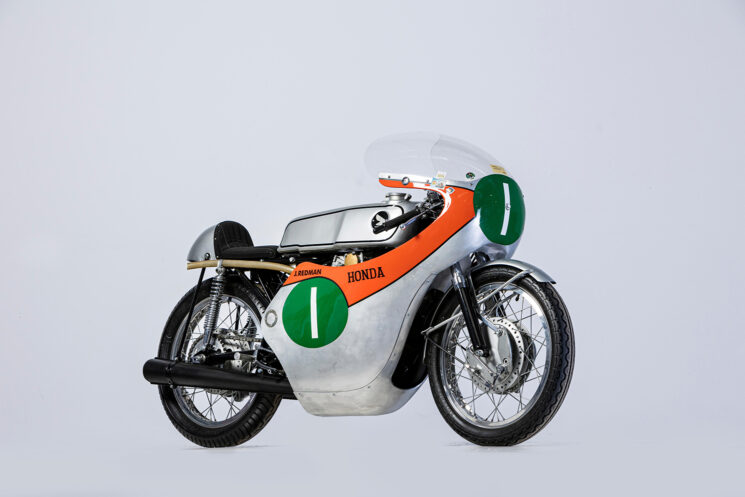
1963 Honda CR72 It was a wide held belief in the 1950s that four-stroke motorcycles couldn’t compete with two-strokes in road racing, that is until Honda rewrote the program in 1961. By incorporating a staggering amount of valvetrain technology, Honda brought home a 250 class world championship title in 61, and kicked off an era of road racing dominance.
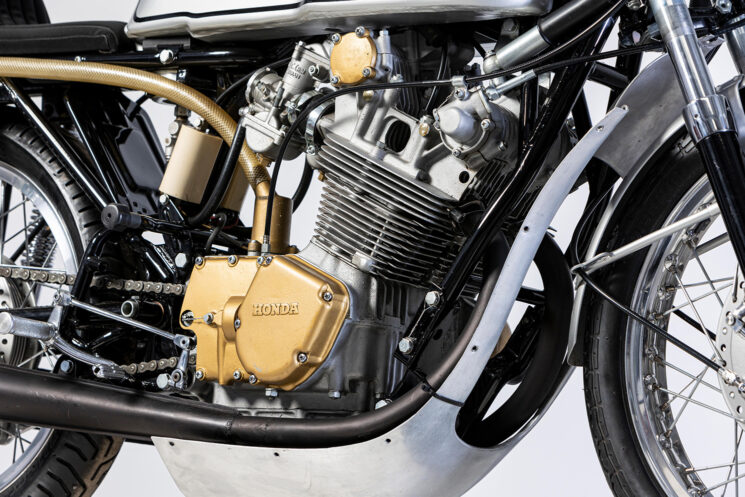
Honda’s CR72 was based on the CB72, but was upgraded for competition use with dual overhead camshafts, four valves per cylinder and a six-speed transmission. The CR was good for 41 hp and 12,500 rpm, and was a fantastic performer for Honda’s factory team at grand prix and short circuit events.
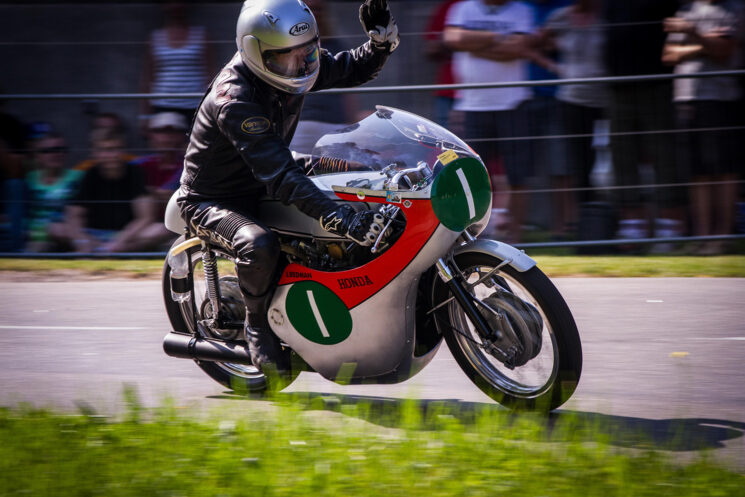
This particular 1963 Honda CR72 was raced in period by Jim Redman and Bruce Beale, and has since been ridden by Redman at modern classic events. The bike has been restored, and has been in its current owner’s care since 1971. Considering Redman’s notable competition career with Honda, Bonhams estimates the bike will sell for between $149,000 and
$186,000.
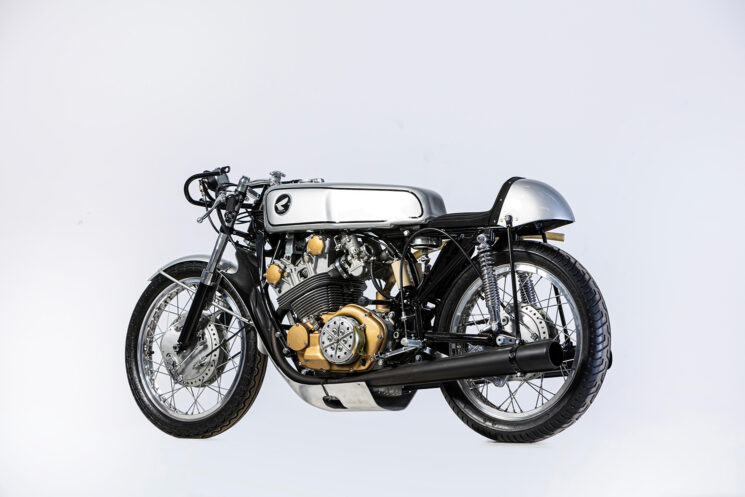
from Bike EXIF https://ift.tt/U7efPG6
No comments:
Post a Comment